 The current situation tells us in what way we should create empathy with the images of the world. Or how the images of the world are themselves empathy, understanding. An abstract economical system that obsessively copies the natural chaos.
Distribution, or relationship. The act of transaction and of eternal and permanent conflict.
The current situation tells us in what way we should create empathy with the images of the world. Or how the images of the world are themselves empathy, understanding. An abstract economical system that obsessively copies the natural chaos.
Distribution, or relationship. The act of transaction and of eternal and permanent conflict.
Mukanda
27.04.2015 | by Pedro Barateiro
 Revolutionary female figures, such as Josina Machel, for example, are represented as saints, without bodily form. For me, Yvone Kane should in a way, be represented like Josina Machel. There is a very chaste side to revolutionaries, as if the women were perfect. Not even in the history books do we find out who they really were.
Revolutionary female figures, such as Josina Machel, for example, are represented as saints, without bodily form. For me, Yvone Kane should in a way, be represented like Josina Machel. There is a very chaste side to revolutionaries, as if the women were perfect. Not even in the history books do we find out who they really were.
Face to face
14.04.2015 | by Marta Lança
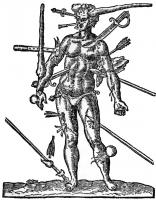 Human hair was already being sold long before capitalism; the sale of human milk was common in ancient Rome and this was even a source of income for many women during the Industrial Revolution. But the first example was not an exchange of commodities in the modern sense, nor in the latter was there any recognition of women as true self-owners. The sale of blood, permitted during most of the twentieth century, was perhaps one of the first generalized ways in which self-ownership left the abstract “straitjacket” of labour power and extended to a physical element of the body, albeit renewable, thus allowing for an additional or last resort income for the most vulnerable self-owners.
Human hair was already being sold long before capitalism; the sale of human milk was common in ancient Rome and this was even a source of income for many women during the Industrial Revolution. But the first example was not an exchange of commodities in the modern sense, nor in the latter was there any recognition of women as true self-owners. The sale of blood, permitted during most of the twentieth century, was perhaps one of the first generalized ways in which self-ownership left the abstract “straitjacket” of labour power and extended to a physical element of the body, albeit renewable, thus allowing for an additional or last resort income for the most vulnerable self-owners.
Body
24.02.2015 | by Bruno Lamas
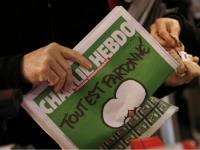 It is simply not acceptable in our day and age to show oneself incapable of truly appreciating the sincere feelings and worldview of others, while at the same time stroking one’s own ego and praising openmindedness and respect for differences at every turn! This inability to look at oneself objectively results from sheer autism.
It is simply not acceptable in our day and age to show oneself incapable of truly appreciating the sincere feelings and worldview of others, while at the same time stroking one’s own ego and praising openmindedness and respect for differences at every turn! This inability to look at oneself objectively results from sheer autism.
Face to face
27.01.2015 | by Boubacar Boris Diop
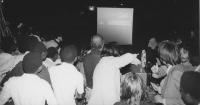 The solo exhibition ‘Monuments in Reverse’ gathers for the first time a set of works by Ângela Ferreira, made between 2008 and 2012, which emerged from the same research-based processes, giving rise, however, to disparate installations whose intimate relationships tend to remain unexplored from a curatorial perspective. With the aim of opening a space of visibility for the conceptual and formal interstices sustaining her practice in general and these works in particular, the exhibition is purposefully documentary and process-based. It intends to shed light on thinking processes more than points of arrival, through the possibility of new connections, or the visibility of previously occluded ones, the strong presence of drawing and video, and the dialogue with works by others which have constituted point of departure or inspiration.
The solo exhibition ‘Monuments in Reverse’ gathers for the first time a set of works by Ângela Ferreira, made between 2008 and 2012, which emerged from the same research-based processes, giving rise, however, to disparate installations whose intimate relationships tend to remain unexplored from a curatorial perspective. With the aim of opening a space of visibility for the conceptual and formal interstices sustaining her practice in general and these works in particular, the exhibition is purposefully documentary and process-based. It intends to shed light on thinking processes more than points of arrival, through the possibility of new connections, or the visibility of previously occluded ones, the strong presence of drawing and video, and the dialogue with works by others which have constituted point of departure or inspiration.
To read
07.01.2015 | by Ana Balona de Oliveira
 We know that racism is the social, cultural and political result of eurocentrism, which created the need to mark, distinguish and separate racialized ethnic groups of the human community, on the basis of skin color and/or culture. The main leverage associated with this dehumanizing enterprise of racialized ethnic groups was set on the power to construct myths that have always justified racism. In that regard, far from constituting a mere repository of unconscious and harmless prejudices, as it is often made believe, the analysis of the political situation, with the strengthening of fascism and the rise of the far right in Europe, demonstrates that racism remains at the junction of contemporary institutional political practices and the slavocratic, imperial and colonial ideologies.
We know that racism is the social, cultural and political result of eurocentrism, which created the need to mark, distinguish and separate racialized ethnic groups of the human community, on the basis of skin color and/or culture. The main leverage associated with this dehumanizing enterprise of racialized ethnic groups was set on the power to construct myths that have always justified racism. In that regard, far from constituting a mere repository of unconscious and harmless prejudices, as it is often made believe, the analysis of the political situation, with the strengthening of fascism and the rise of the far right in Europe, demonstrates that racism remains at the junction of contemporary institutional political practices and the slavocratic, imperial and colonial ideologies.
To read
29.12.2014 | by Mamadou Ba
 A City Called Mirage is a complex exhibition, by the Angolan artist KILUANJI KIA HENDA (Luanda, 1979), which explores original approaches to a recurring theme in recent times: that of cities between the states of virtuality and desertification. Kiluanji uses (science and mythological) fiction and irony as ways of transcending the pessimism of hyper-criticism and the aesthetics of the ruin. Through humour we are made aware of just how ephemeral the largest human constructions are: all cities will be reduced to raw materials again, just like the metals removed from the ground will once again merge back into it.
A City Called Mirage is a complex exhibition, by the Angolan artist KILUANJI KIA HENDA (Luanda, 1979), which explores original approaches to a recurring theme in recent times: that of cities between the states of virtuality and desertification. Kiluanji uses (science and mythological) fiction and irony as ways of transcending the pessimism of hyper-criticism and the aesthetics of the ruin. Through humour we are made aware of just how ephemeral the largest human constructions are: all cities will be reduced to raw materials again, just like the metals removed from the ground will once again merge back into it.
City
03.10.2014 | by Lucas Parente
 Breyten Breytenbach is a distinguished poet, painter, novelist, playwright, essayist and human rights activist. He is considered one of the greatest living poets in Afrikaans. His literary work has been translated into many languages and he has been honoured with numerous literary and art awards. Having exhibited worldwide he is also a recognized painter, portraying surreal imagery. He was born on 16 September 1939 in Bonnievale and studied art at the Michaelis Art School in Cape Town.
Breyten Breytenbach is a distinguished poet, painter, novelist, playwright, essayist and human rights activist. He is considered one of the greatest living poets in Afrikaans. His literary work has been translated into many languages and he has been honoured with numerous literary and art awards. Having exhibited worldwide he is also a recognized painter, portraying surreal imagery. He was born on 16 September 1939 in Bonnievale and studied art at the Michaelis Art School in Cape Town.
To read
27.08.2014 | by Breyten Breytenbach
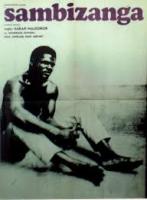 How MPLA’s ideology, in particular its Marxist-Leninist values, shaped Sambizanga? In which ways the film was shaped, by both Maldoror and the MPLA, as a piece of propaganda, in order to gain international recognition for the injustice of the Portuguese rule in Angola and credibility for the MPLA in the international community. Maldoror has said that she tried to accomplish three things with Sambizanga: capture a particular movement in the history of the Angolan liberation struggle; create a film that would educate Westerners to the situation in Angola; and tell the story of a revolution from the perspective of a woman. This dissertation will argue that these three aims can be linked to the propagandistic elements of the film and the ideology of the MPLA.
How MPLA’s ideology, in particular its Marxist-Leninist values, shaped Sambizanga? In which ways the film was shaped, by both Maldoror and the MPLA, as a piece of propaganda, in order to gain international recognition for the injustice of the Portuguese rule in Angola and credibility for the MPLA in the international community. Maldoror has said that she tried to accomplish three things with Sambizanga: capture a particular movement in the history of the Angolan liberation struggle; create a film that would educate Westerners to the situation in Angola; and tell the story of a revolution from the perspective of a woman. This dissertation will argue that these three aims can be linked to the propagandistic elements of the film and the ideology of the MPLA.
Afroscreen
04.06.2014 | by Alice Breitmeyer
 The Olympic Winter Games in Sochi, Russia started on February 7 with the Opening Ceremony, where 88 athletes bearing the flags of their respective nations led their national delegations into the Olympic Stadium. When a lonely man representing Zimbabwe entered on position 26, one could have asked two questions: Why is a Zimbabwean the 26th, if there is an alphabetical order? And, probably more interesting, what is a man from the southern Africa doing at Olympic Winter Games?
The Olympic Winter Games in Sochi, Russia started on February 7 with the Opening Ceremony, where 88 athletes bearing the flags of their respective nations led their national delegations into the Olympic Stadium. When a lonely man representing Zimbabwe entered on position 26, one could have asked two questions: Why is a Zimbabwean the 26th, if there is an alphabetical order? And, probably more interesting, what is a man from the southern Africa doing at Olympic Winter Games?
I'll visit
26.02.2014 | by Robin Nuss
 “Submundo Luso vs 12transfusons” is a new mix tape that features rappers from Angola, Mozambique, Brazil and Portugal. Released on New Year’s Eve after five months of preparation, the project brought together hip-hop promoters from the blogs Submundo Luso [pt] in Mozambique and 12transfusons [pt] in Angola. The two met online and the former invited the latter to collaborate.
In this interview for the blog Underground Lusófono [pt], Astérix o Néfilim (Astérix the Giant, in English), a rapper, producer and manager at 12transfusons, talks about the effort, which counted the participation of artists from all over the globe and is now available as a free download. He also shares his views on the artistic scene in Cabinda – a tiny province in the north of Angola – and the challenges caused by such isolation.
“Submundo Luso vs 12transfusons” is a new mix tape that features rappers from Angola, Mozambique, Brazil and Portugal. Released on New Year’s Eve after five months of preparation, the project brought together hip-hop promoters from the blogs Submundo Luso [pt] in Mozambique and 12transfusons [pt] in Angola. The two met online and the former invited the latter to collaborate.
In this interview for the blog Underground Lusófono [pt], Astérix o Néfilim (Astérix the Giant, in English), a rapper, producer and manager at 12transfusons, talks about the effort, which counted the participation of artists from all over the globe and is now available as a free download. He also shares his views on the artistic scene in Cabinda – a tiny province in the north of Angola – and the challenges caused by such isolation.
Stages
28.01.2014 | by vários
 "I don't consider Brazil that different from Angola, culturally speaking. By the way, Angola currently consumes a lot of global culture. Mostly younger people. Not even the differences in language are an obstacle to the understanding of my comics."
"I don't consider Brazil that different from Angola, culturally speaking. By the way, Angola currently consumes a lot of global culture. Mostly younger people. Not even the differences in language are an obstacle to the understanding of my comics."
Face to face
19.12.2013 | by Luís Henrique and Global Voices (Vozes Globais)
 In contemporary Portuguese cinema, the question is to know how to represent the revolution. How can the revolution’s temporality be reconfigured in the present? How can it be made present and not past? How can the archives of the revolution’s political strength be restored? If the crossing of history is always a critical operation and if the historical approach implies a process of identification with past events, for contemporary Portuguese filmmakers — especially the children of the revolution — these vast archives and this impressive cinematic corpus place the question outside of the reach of any historicism.
In contemporary Portuguese cinema, the question is to know how to represent the revolution. How can the revolution’s temporality be reconfigured in the present? How can it be made present and not past? How can the archives of the revolution’s political strength be restored? If the crossing of history is always a critical operation and if the historical approach implies a process of identification with past events, for contemporary Portuguese filmmakers — especially the children of the revolution — these vast archives and this impressive cinematic corpus place the question outside of the reach of any historicism.
Afroscreen
27.10.2013 | by Raquel Schefer
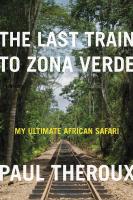 He dares refer to Angola as ‘pretty much terra incognita’ and even as a country in ‘isolation’. These descriptions are unfathomable when you consider even a basic historical listing that might take in the arrival of the Portuguese in the fifteenth century, the onward creep of Christianity, the trans-Atlantic slave trade, Portuguese colonialism, the proxy Cold War, the international oil and diamond industries, and more recently the influx of the Chinese, not to mention Angola’s major financial investments in Portugal and the explosion of kuduro music across the globe. Even at the micro level, there are plenty of Angolans who live in Luanda’s musseques, but travel across the globe to buy clothes, soft furnishings and mobile phones to sell back home. Isolated? I think not. Unknown to parochial North Americans? No doubt.
He dares refer to Angola as ‘pretty much terra incognita’ and even as a country in ‘isolation’. These descriptions are unfathomable when you consider even a basic historical listing that might take in the arrival of the Portuguese in the fifteenth century, the onward creep of Christianity, the trans-Atlantic slave trade, Portuguese colonialism, the proxy Cold War, the international oil and diamond industries, and more recently the influx of the Chinese, not to mention Angola’s major financial investments in Portugal and the explosion of kuduro music across the globe. Even at the micro level, there are plenty of Angolans who live in Luanda’s musseques, but travel across the globe to buy clothes, soft furnishings and mobile phones to sell back home. Isolated? I think not. Unknown to parochial North Americans? No doubt.
To read
12.10.2013 | by Lara Pawson
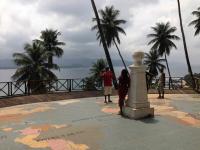 I will begin by reviewing two contrastive approaches in the anthropological and neighboring literatures on Latin America: the postcolonial and the multiple modernities perspectives. It then discusses the possible place(s) of Brazilian classic nation-building literature in these debates, putting forth an argument for the need for substantial historical embedding when addressing the postcolonial in relation to Brazil. It concludes with remarks based on ongoing ethnographic research about contemporary South-South cooperation between Brazil and the African continent.
I will begin by reviewing two contrastive approaches in the anthropological and neighboring literatures on Latin America: the postcolonial and the multiple modernities perspectives. It then discusses the possible place(s) of Brazilian classic nation-building literature in these debates, putting forth an argument for the need for substantial historical embedding when addressing the postcolonial in relation to Brazil. It concludes with remarks based on ongoing ethnographic research about contemporary South-South cooperation between Brazil and the African continent.
To read
11.10.2013 | by Letícia Cesarino
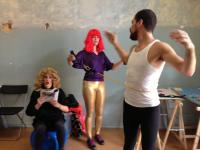 Is imperative to not look at recent events in a epiphenomenal way, focusing exclusively on the squares themselves, as if these events were “irrational”, came out of nowhere and went back to noplace (the very name “Arab Spring” seems to imply that the Spring is outside the historical time). We should instead try to understand them in continuity, alongside a myriad of encounters, practices, actions – that we call ’zones of resistance and practices of invention’.
Is imperative to not look at recent events in a epiphenomenal way, focusing exclusively on the squares themselves, as if these events were “irrational”, came out of nowhere and went back to noplace (the very name “Arab Spring” seems to imply that the Spring is outside the historical time). We should instead try to understand them in continuity, alongside a myriad of encounters, practices, actions – that we call ’zones of resistance and practices of invention’.
Games Without Borders
04.10.2013 | by Ana Bigotte Vieira
 Latin American intellectuals have been in the forefront of doing mestiçage, métissage, Anthropophagy. While we certainly consider ourselves as part of Postcolonial theory, we have also critiqued certain of its aspects, for example the ahistorical, uncritical celebration of hybridity discourse. We were asking: “What are the genealogies of such discourses?” We prefer to emphasize the question of “linked analogies” between and across national borders. So for us, cross-border analysis becomes really crucial. It is not reducible to nation-state formations.
Latin American intellectuals have been in the forefront of doing mestiçage, métissage, Anthropophagy. While we certainly consider ourselves as part of Postcolonial theory, we have also critiqued certain of its aspects, for example the ahistorical, uncritical celebration of hybridity discourse. We were asking: “What are the genealogies of such discourses?” We prefer to emphasize the question of “linked analogies” between and across national borders. So for us, cross-border analysis becomes really crucial. It is not reducible to nation-state formations.
To read
01.10.2013 | by Emanuelle Santos and Patricia Schor
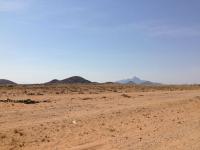 Carvalho urges to engage with and to give voice to narratives silenced or ignored by dominant ones, which also don’t allow them to have a place in mainstream historiography. Thus he makes the call to listen to the other, to other worldviews, to emerging voices. In his view, it is time to attend to all sorts of voices that the world still holds, some of which are at risk of disappearance – in everybody´s interest of human diversity.
Carvalho urges to engage with and to give voice to narratives silenced or ignored by dominant ones, which also don’t allow them to have a place in mainstream historiography. Thus he makes the call to listen to the other, to other worldviews, to emerging voices. In his view, it is time to attend to all sorts of voices that the world still holds, some of which are at risk of disappearance – in everybody´s interest of human diversity.
Ruy Duarte de Carvalho
11.09.2013 | by Marta Lança
 Researching the relations between ongoing artistic, social and political forms of life, Generative Indirections intends to explore the potentialities of performance studies in the critical space between the Social Sciences, Humanities and Art, and give voice to counter hegemonic epistemologies, blurring theory and practice. In-direction thus becomes a magnetic field, moving between theory and practice, challenging disciplinary boundaries in order to question how Performance Studies can be received in Portugal.
Researching the relations between ongoing artistic, social and political forms of life, Generative Indirections intends to explore the potentialities of performance studies in the critical space between the Social Sciences, Humanities and Art, and give voice to counter hegemonic epistemologies, blurring theory and practice. In-direction thus becomes a magnetic field, moving between theory and practice, challenging disciplinary boundaries in order to question how Performance Studies can be received in Portugal.
I'll visit
01.09.2013 | by Baldio
 ECAScreening5: The battle mentioned in the title of the movie is that between Good and Evil, symbolizing music and silence, Africa and Europe, told through the story of a Guinean musician who, caught in the convulsions of the colonial war, left for Portugal and returns home to the wedding of his daughter with a musician, ending up disturbing the ancestral equilibrium of mandinga mysticism.
ECAScreening5: The battle mentioned in the title of the movie is that between Good and Evil, symbolizing music and silence, Africa and Europe, told through the story of a Guinean musician who, caught in the convulsions of the colonial war, left for Portugal and returns home to the wedding of his daughter with a musician, ending up disturbing the ancestral equilibrium of mandinga mysticism.
Afroscreen
26.06.2013 | by Jorge Mourinha